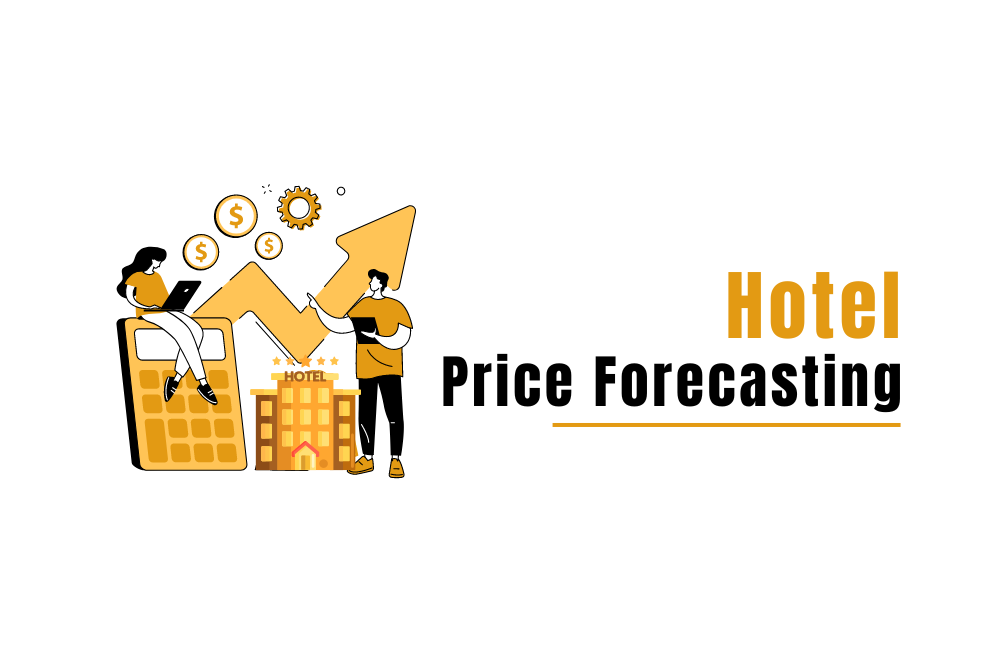
FORECASTING & AVAILABILITY CONTROLS PILLARS OF HOTEL REVENUE MANAGEMENT
Introduction
The hotel industry is highly dynamic and competitive, with revenue management playing a pivotal role in ensuring long-term success. Effective revenue management relies on accurate forecasting and efficient availability controls to optimize room rates, maximize revenue, and enhance guest satisfaction. In this article, we will delve into the significance of forecasting and availability controls in hotel revenue management and explore the strategies that can help hoteliers make informed decisions to achieve their business objectives.
The Importance of Forecasting
Forecasting serves as the foundation of hotel revenue management, as it involves predicting future demand and market trends to optimize pricing and inventory. Accurate forecasting empowers hoteliers to anticipate fluctuations in demand, special events, and seasonal patterns, allowing them to adapt their strategies accordingly. By leveraging historical data, market intelligence, and advanced analytics, hotels can make informed decisions about pricing, promotions, and distribution channels.To improve forecasting accuracy, hotel revenue managers must consider various factors, including:
a. Historical Data Analysis: Analyzing past performance data can provide valuable insights into booking patterns, seasonality, and trends. Utilizing this information, hoteliers can adjust pricing and inventory availability to cater to different segments effectively.
b. Market Research: Keeping a close eye on market trends, competitor pricing, and events can aid in identifying potential opportunities and threats, enabling better decision-making.
c. Demand Segmentation: Different customer segments exhibit diverse booking behaviors. Segmentation helps hotels understand which groups to target, allowing them to tailor pricing and promotional strategies for maximum impact.
Implementing Availability Controls
Availability controls involve strategically managing room inventory to maximize revenue while meeting guest demand. Effective availability controls prevent revenue loss due to overbooking or underselling and optimize room rates to achieve the best possible yield. Some key aspects of implementing availability controls include:a. Overbooking and Underbooking: Overbooking, while risky if not managed properly, can help hotels mitigate potential revenue losses due to cancellations or no-shows. Underbooking, on the other hand, can be useful during times of uncertainty or to create a sense of urgency among potential guests.
b. Rate Fences: Rate fences are restrictions applied to specific rates based on factors such as booking lead time, length of stay, and room type. By setting rate fences appropriately, hotels can encourage guests to book at higher rates while offering lower rates to those who book early or stay longer.
c. Channel Management: Managing availability across different distribution channels is crucial in ensuring rate parity and preventing rate erosion. By employing a channel management system, hotels can control inventory allocation and maintain consistency in pricing.
Leveraging Technology and Data Analytics
The advent of technology and data analytics has revolutionized hotel revenue management, making it more efficient and effective. Revenue management systems (RMS) powered by advanced algorithms can process vast amounts of data and provide real-time insights, allowing hoteliers to make quick, data-driven decisions. These systems consider various factors, such as demand trends, competitor pricing, and customer behavior, to recommend optimal pricing and inventory strategies.Additionally, predictive analytics can aid in demand forecasting, enabling hotels to adjust rates dynamically based on anticipated demand. Machine learning algorithms can also help in identifying demand patterns that might have been overlooked in traditional manual approaches.
Conclusion
Forecasting and availability controls are fundamental pillars of hotel revenue management, enabling hotels to optimize pricing, maximize revenue, and deliver enhanced guest experiences. Accurate forecasting empowers hoteliers to anticipate demand fluctuations and make informed decisions based on market insights. Availability controls, when implemented wisely, help hotels optimize inventory allocation and pricing strategies, ensuring that revenue potential is maximized without compromising on guest satisfaction.
In today's competitive hospitality landscape, embracing technology and data analytics is essential for hotels looking to stay ahead of the curve. By harnessing the power of advanced revenue management systems, hotels can unlock new levels of efficiency and profitability, providing a win-win scenario for both the hotel and its valued guests.
by- OARSolution

THE POWER OF HOTEL GUEST REVIEWS:HOW FEEDBACK IMPACTS YOUR HOTEL
Introduction
In the digital age, hotel guest reviews have become an integral part of the hospitality industry. Today, potential guests often rely on online reviews to make informed decisions about where to stay. A plethora of platforms, such as TripAdvisor, Google, Yelp, and Booking.com, allow travelers to share their experiences and provide feedback on their stays. Understanding the significance of these reviews and their impact on a hotel is essential for any establishment striving to excel in the competitive hospitality landscape.
Guest Reviews: The Modern Word of Mouth
In the past, guests would share their hotel experiences with friends and family through word of mouth. Today, the internet has amplified this process, reaching an exponentially larger audience. Hotel guest reviews serve as an essential form of social proof, offering potential guests a glimpse into the real experiences of others. Positive reviews can attract new customers, while negative reviews may discourage potential guests from booking. Therefore, managing online reputation has become a crucial aspect of any hotel's marketing strategy.Influence on Booking Decisions
The impact of guest reviews on booking decisions cannot be overstated. Studies have shown that a vast majority of travelers read online reviews before making reservations. Positive reviews can boost a hotel's credibility and increase the likelihood of a booking, while negative reviews can deter potential guests. In fact, a single negative review can cost a hotel business several potential bookings. Hence, hoteliers must actively engage with reviews and address any issues raised by guests to demonstrate their commitment to providing excellent service.Quality of Service and Guest Experience
Guest reviews serve as a direct feedback mechanism for hotels. These reviews shed light on various aspects of the guest experience, such as customer service, cleanliness, amenities, and overall satisfaction. By carefully analyzing feedback, hoteliers can identify strengths and weaknesses, enabling them to enhance the quality of their services and facilities. A proactive approach to guest feedback fosters continuous improvement, leading to higher guest satisfaction levels in the long run.Building Trust and Loyalty
Positive guest reviews play a pivotal role in building trust and brand loyalty. Satisfied guests are more likely to become repeat customers, leading to increased revenue and positive word of mouth. Furthermore, prospective guests are more inclined to trust a hotel with a significant number of positive reviews, as it demonstrates a track record of providing exceptional experiences. As trust in the brand grows, so does the likelihood of repeat visits and recommendations to others.Responding to Negative Reviews
While positive reviews are vital, negative reviews cannot be ignored. On the contrary, they present an opportunity for hotels to showcase their commitment to customer service. Responding to negative reviews in a professional, empathetic, and solution-oriented manner demonstrates that the hotel takes guest feedback seriously. Potential guests appreciate seeing the effort made to address issues, which can potentially turn a dissatisfied guest into a loyal one.Competitor Analysis
Beyond their impact on a single hotel, guest reviews also provide valuable insights into the competition. By analyzing competitor reviews, hoteliers can gain a better understanding of industry trends, identify areas where competitors excel, and leverage this knowledge to enhance their own offerings. Such competitive analysis can lead to strategic improvements and innovative services that set the hotel apart from others.Conclusion
In today's digital age, hotel guest reviews are a potent force that significantly impacts a hotel's success. They influence booking decisions, affect the hotel's reputation, and play a crucial role in building trust and loyalty among guests. Understanding the power of reviews and actively managing them is vital for hotels to thrive in a competitive market. By listening to guests' feedback, continuously improving services, and engaging with online reviews, hotels can enhance the overall guest experience and position themselves as beacons of exceptional hospitality.
by- OARSolution

DIGITAL MARKETING FOR HOTELS:UNLOCKING SUCCESS
Introduction
In today's rapidly evolving digital landscape, traditional marketing methods are no longer sufficient for hotels to stay competitive and achieve success. The hospitality industry, including hotels, has embraced the power of digital marketing to attract, engage, and convert potential guests. This article explores the significance of digital marketing for hotels and how it can lead to increased bookings, enhanced guest experiences, and overall business success.
Enhanced Online Presence
Digital marketing offers hotels the opportunity to establish a strong online presence. A well-designed website, optimized for search engines, becomes a virtual storefront where potential guests can explore rooms, amenities, and special offers. Additionally, a presence on popular social media platforms and travel-related websites provides hotels with a direct channel to engage with their target audience.Targeted Marketing and Personalization
One of the key advantages of digital marketing is the ability to target specific audiences based on demographics, preferences, and online behavior. Hotels can employ various digital marketing tools, such as Google Ads and social media advertising, to reach potential guests who are most likely to be interested in their offerings. Furthermore, personalized email marketing campaigns can nurture customer relationships and foster loyalty.Social Media Influence
Social media has transformed the way hotels interact with their guests. Through compelling visual content, engaging posts, and authentic storytelling, hotels can create a unique brand identity and build a loyal community of followers. Positive reviews, user-generated content, and social media influencers can significantly impact a hotel's reputation and attract new guests.Search Engine Optimization (SEO)
SEO plays a pivotal role in driving organic traffic to a hotel's website. By optimizing their website for relevant keywords and providing valuable content, hotels can rank higher in search engine results, increasing visibility and attracting potential guests actively searching for accommodation options.Online Booking and Revenue Management
Digital marketing empowers hotels to streamline their booking process, making it convenient for guests to reserve rooms directly through the website or mobile app. Moreover, hotels can leverage revenue management systems to optimize pricing strategies based on real-time data, ensuring competitive rates and maximizing profits.Data-Driven Decision Making
With digital marketing tools, hotels can access a wealth of data related to their website's performance, customer behavior, and campaign effectiveness. Analyzing this data helps hoteliers make informed decisions, refine marketing strategies, and improve the overall guest experience.Influencer Marketing
Collaborating with social media influencers, travel bloggers, and content creators allows hotels to tap into new audiences and create authentic connections. Influencers can showcase the hotel's unique features, amenities, and experiences, enticing potential guests to choose their establishment over competitors.Online Reviews and Reputation Management
Online reviews and ratings have a substantial impact on a hotel's reputation. By actively monitoring and responding to guest reviews, hotels can demonstrate their commitment to guest satisfaction and address any concerns promptly. A positive online reputation encourages more bookings and repeat guests.Conclusion
In the digital age, digital marketing has become indispensable for hotels striving to achieve success. By embracing various digital strategies, including a strong online presence, targeted marketing, social media engagement, SEO, and data-driven decision-making, hotels can unlock their full potential and thrive in a highly competitive market. With a focus on enhancing the guest experience and building brand loyalty, digital marketing offers hotels the tools they need to stay relevant and successful in an ever-evolving industry.
by- OARSolution